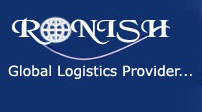
In today’s competitive business landscape, companies are increasingly recognizing the importance of value added services in logistics.
These services go beyond the core functions of transportation and storage, providing additional offerings that address specific customer needs and streamline processes.
By incorporating value-added services into their operations, businesses can enhance their competitive edge, improve operational efficiency, and exceed customer expectations.
Understanding Value Added Services in Logistics
Value-added services in logistics refer to the extra offerings that go beyond transportation and storage.
These services provide value by addressing specific customer requirements, streamlining processes, and contributing to a more efficient and effective supply chain.
Examples of value-added services include order fulfillment, packaging customization, kitting, labeling, and reverse logistics.
The Strategic Importance of Value-Added Services
Competitive Differentiation
In a crowded market, logistics providers can differentiate themselves by offering unique and tailored value-added services. These services not only attract new clients but also strengthen relationships with existing ones.
By providing specialized solutions that meet the unique needs of their customers, logistics companies can stand out from the competition and gain a competitive edge.
Enhanced Customer Satisfaction
Value-added services are critical to increasing client satisfaction. By offering services like real-time tracking, order visibility, and customized packaging, logistics providers can exceed customer expectations and provide a positive customer experience.
These services contribute significantly to customer satisfaction and can lead to long-term customer loyalty.
Operational Efficiency
Integrating value-added services into the logistics process can result in greater efficiency and accuracy. By automating order fulfillment, implementing advanced inventory management systems, and leveraging technology-driven solutions, companies can streamline their supply chain operations.
This improved efficiency leads to faster order processing, reduced errors, and better overall performance.
Cost Optimization
While value-added services may initially be seen as an additional cost, they can lead to long-term cost savings. Efficient packaging, streamlined order processing, and optimized inventory management can result in reduced operational expenses.
By implementing these value-added services, companies can achieve cost optimization without compromising on service quality.
Key Value Added Services in Logistics
Order Fulfillment Services
Order fulfillment services are essential to ensuring timely deliveries and efficient processing of orders. By optimizing inventory levels, reducing order processing times, and implementing efficient order fulfillment processes, logistics providers can streamline their operations and improve customer satisfaction.
Packaging Customization
Packaging customization is a value-added service that tailors packaging solutions to meet specific product requirements. By ensuring safe transportation while minimizing waste, logistics providers can enhance the overall customer experience and improve product protection during transit.
Kitting and Assembly
Kitting and assembly services involve the assembly of product kits or components to meet customer specifications. By reducing handling and assembly time for end-users, logistics providers can streamline operations and improve overall efficiency.
Labeling and Branding
Labeling and branding services contribute to the visibility and marketability of products. By providing labeling and branding solutions, logistics providers can help their clients differentiate their products in the market and enhance their brand image.
Reverse Logistics
Reverse logistics involves efficiently managing the return process, offering hassle-free returns for customers, and minimizing the environmental impact of returned goods. By streamlining the reverse logistics process, logistics providers can improve customer satisfaction and reduce the costs associated with returns.
Technology Integration in Value-Added Services
Automation and Robotics
Leveraging automation and robotics can enhance order picking, packing, and shipping processes in logistics. By reducing human error and increasing efficiency, logistics providers can improve their overall productivity and deliver better service to their customers.
Data Analytics
Utilizing data analytics can optimize inventory levels, forecast demand, and identify areas for process improvement. By analyzing data, logistics providers can make informed decisions, improve efficiency, and enhance customer satisfaction.
Real-time Tracking
Implementing real-time tracking solutions provides customers with visibility into the status and location of their shipments. By offering real-time tracking, logistics providers can improve transparency, increase customer satisfaction, and proactively manage any potential issues.
Conclusion
In the ever-evolving world of logistics, value added services in logistics play a crucial role in enhancing efficiency and customer satisfaction. By offering unique and tailored services, logistics providers can differentiate themselves from the competition and build stronger relationships with their customers.
Through strategic planning, technological integration, and a commitment to continuous improvement, companies can unlock the full potential of value-added services and pave the way for a more efficient and customer-centric supply chain.
